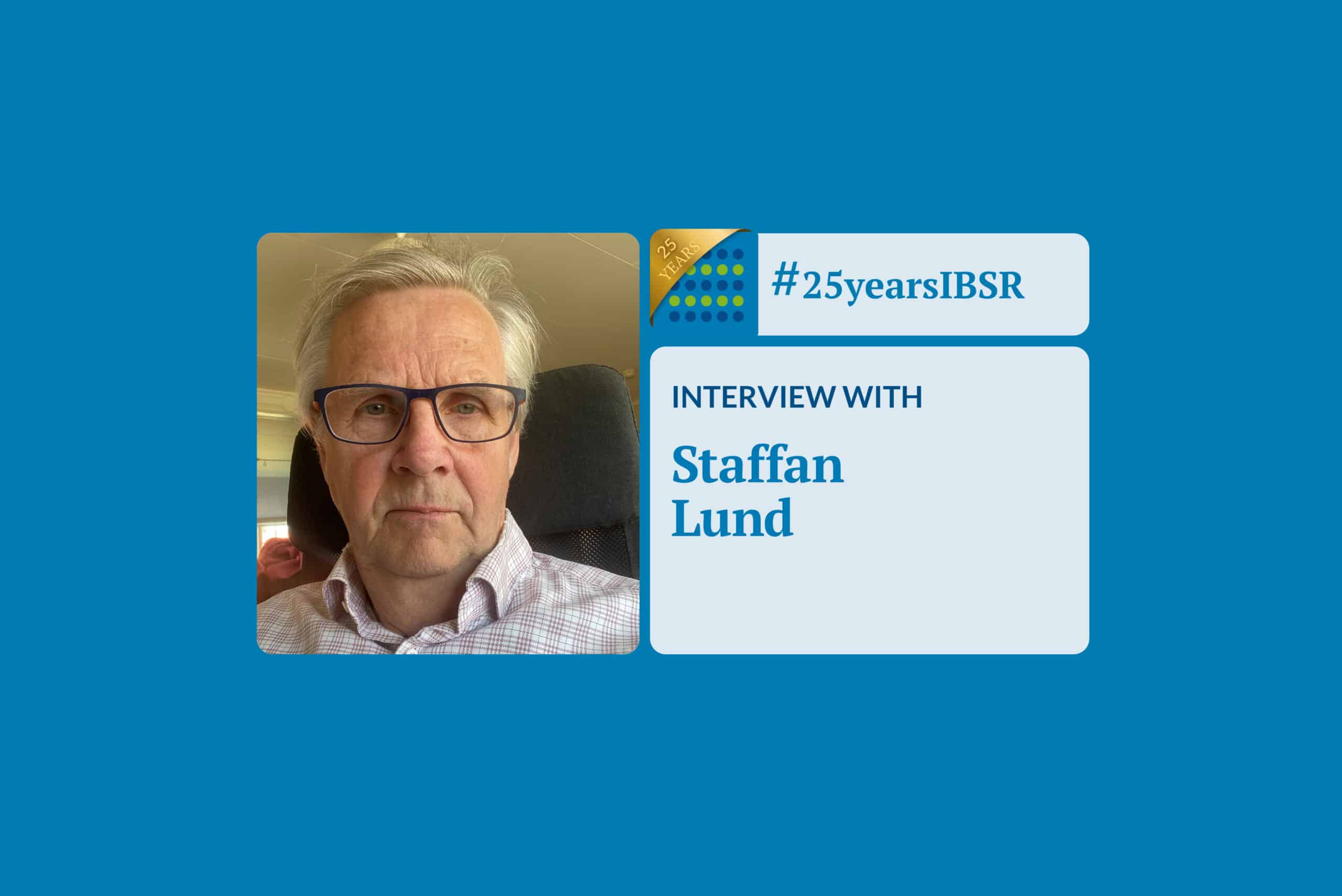
6 June 2023
Interreg: the key to developing new ideas, perspectives and attitude
#25yearsIBSR
Staffan Lund from the Swedish University of Agricultural Sciences took part in several Interreg projects about water management in the agricultural landscape, e.g. Baltic Compass, Baltic Compact and Waterdrive.
Anna Gałyga: What benefits have the Programme brought to water management?
The Programme has been very important in delivering solutions for water management in the agricultural landscape. First, it was about building an understanding between the environmental community and agricultural production community of what can be done together. Then we tested a hypothesis that cross-sectoral collaboration on the local level on water management can achieve more. The project Waterdrive was exactly about that. We also thought that water management could drive other economic developments in rural areas. The Programme gave us an opportunity to prove both hypotheses to be true.
Can you provide an example of that?
A very good example comes from Kutno County in Poland. They managed to implement local water partnerships driven by several objectives: water quality, biodiversity, access to water in the landscape and sustainable agricultural production. The same goes for Denmark where they have a specific scheme to support local partnerships now.
What is your best memory related to Interreg?
I have a lot of memories related to the project Waterdrive we ran in parallel to the COVID pandemic. But it was really fantastic when we finally could come to the Kutno area in 2021 to meet all the partners again. We saw what it is like to run local water partnerships in practice. They are now transferred to other parts of Poland and other countries, too.
What associations with Interreg do you have?
The great thing about this Programme is its transnational character: cross-sectoral cooperation is at the core of it. It is the key to developing new ideas, perspectives and attitudes. In all projects, you need a plan or a frame but when you bring people from different sectors together, you don’t know what will happen. So you need some kind of dynamic readiness to change, too.
What wishes for the future of the Programme would you have?
I think it’s important that the Programme sticks to its transnational and cross-sectoral approach because it’s the key. You have a fantastic staff at the Joint Secretariat who have been supporting us in any kind of administrative issues but maybe that administration could be even more simplified. And water will remain a relevant issue in the Baltic Sea region so keeping that at the centre of the Programme would be important.
#25yearsIBSR
This year, our Interreg Baltic Sea Region Programme is celebrating its 25th anniversary. For more examples of #MadeWithIBSR project results and testimonials of great people who have helped shape the regions with us, visit our birthday celebrations page!
More recent news
Grand results of the first round of small projects!
Despite the winter scenery, the results of 17 finalised Interreg Baltic Sea Region projects are in full bloom! And behind them lie two years of intensive work across borders, mutual learning and inspiration, and connections that last.
Climate-neutral future at hand for Baltic Sea region cities
Turning a city into a climate-neutral one requires knowledgeable people, thorough planning and solid financial resources. But how can cities manage this transition smoothly? The Interreg project Climate-4-Case guides cities around the Baltic Sea on how to do that right.
Designing Interreg Baltic Sea Region that belongs to everyone
10 December 2025 Designing Interreg Baltic Sea Region that belongs to everyone Written by Eeva Rantama What if the next Interreg Baltic Sea Region...
Monitoring the Programme’s progress: transnational cooperation in the making
Representatives from nine Programme area countries gathered in Berlin on 19-20 November 2025 to review the progress of the Programme’s implementation and start preparing for the post-2027 period.






